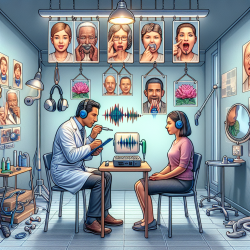Introduction
In the realm of speech-language pathology, creating impactful outcomes for children requires a nuanced understanding of cultural and historical contexts. The recent research article, "Truth and Reconciliation Commissions and Health Care System Responses for Indigenous Peoples," offers valuable insights into how truth and reconciliation commissions (TRCs) can inform and transform health care practices, including speech-language pathology. This blog aims to guide practitioners in integrating these insights to enhance their skills and improve outcomes for Indigenous children.
Understanding TRCs and Their Relevance
Truth and reconciliation commissions are established to address and rectify historical injustices, particularly those affecting Indigenous communities. These commissions often recommend changes in health care systems to better serve Indigenous populations. The research highlights three main themes in health care system responses to TRCs:
- Acknowledgment of multiple ways of knowing, being, and doing in health systems
- Current interventions as responses within health systems
- Suggestions for systemic change
Implementing TRC Insights in Speech-Language Pathology
As speech-language pathologists, acknowledging and integrating diverse knowledge systems is crucial. Here are some actionable steps to implement the findings from the research:
- Cultural Competency Training: Engage in training that focuses on cultural safety and understanding the historical context of Indigenous health. This training should emphasize power dynamics and the impact of colonization on health disparities.
- Inclusion of Indigenous Practices: Incorporate Indigenous healing practices and perspectives into therapeutic approaches. This may involve collaborating with Indigenous healers and respecting traditional knowledge systems.
- Partnerships and Collaboration: Build respectful partnerships with Indigenous communities to co-create therapeutic strategies that are culturally relevant and effective.
- Strengths-Based Approach: Focus on the strengths and resilience of Indigenous children and communities, rather than adopting a deficit-based perspective.
Encouraging Further Research and Engagement
While the research provides a foundation, ongoing engagement with Indigenous communities and continuous learning are essential. Practitioners are encouraged to explore further research and actively participate in discussions around TRC recommendations and their implementation in health care settings.
Conclusion
Integrating the insights from truth and reconciliation commissions into speech-language pathology can significantly enhance the quality of care for Indigenous children. By embracing cultural competency, acknowledging diverse knowledge systems, and fostering collaborative partnerships, practitioners can contribute to meaningful change and improved outcomes.
To read the original research paper, please follow this link: Truth and Reconciliation Commissions and Health Care System Responses for Indigenous Peoples.










